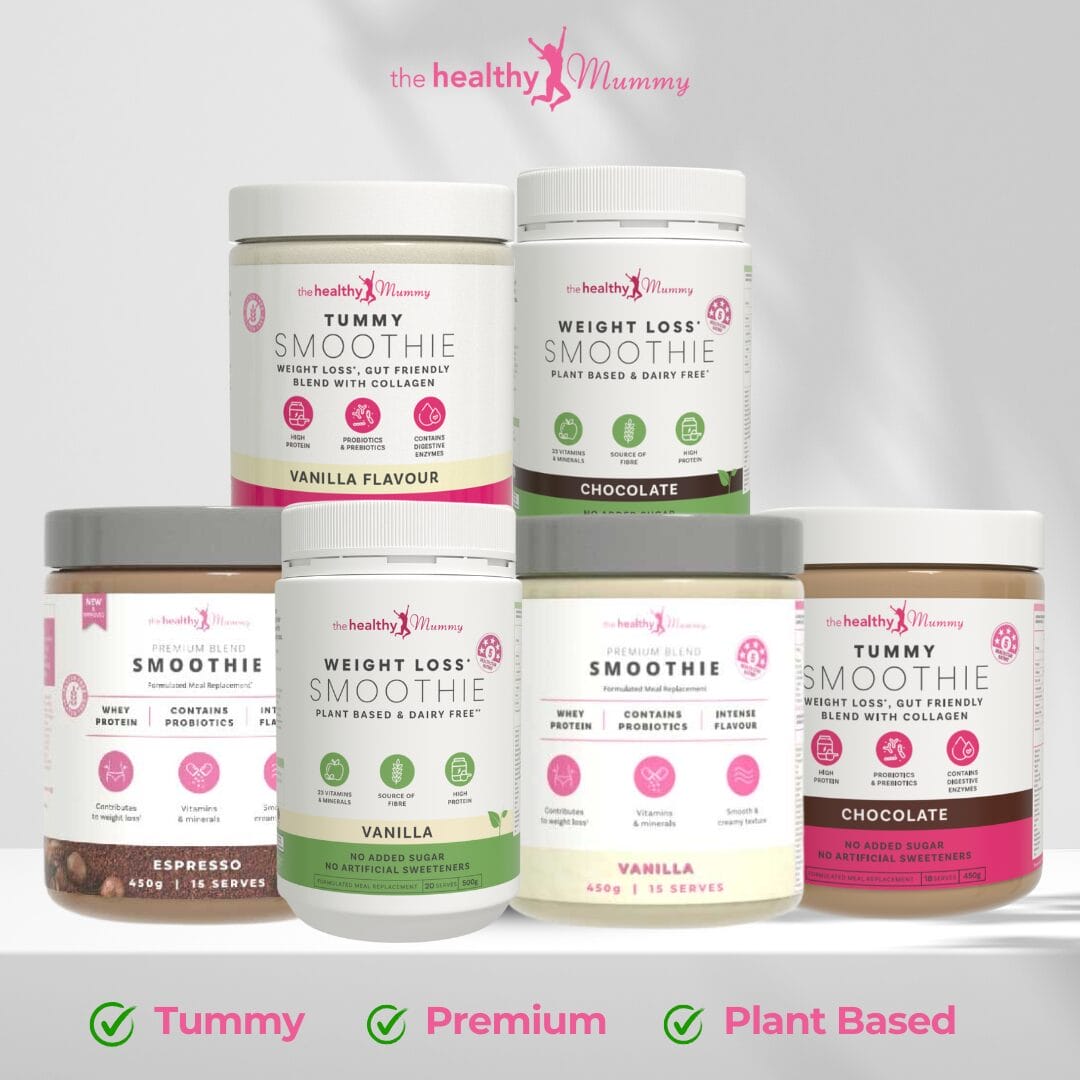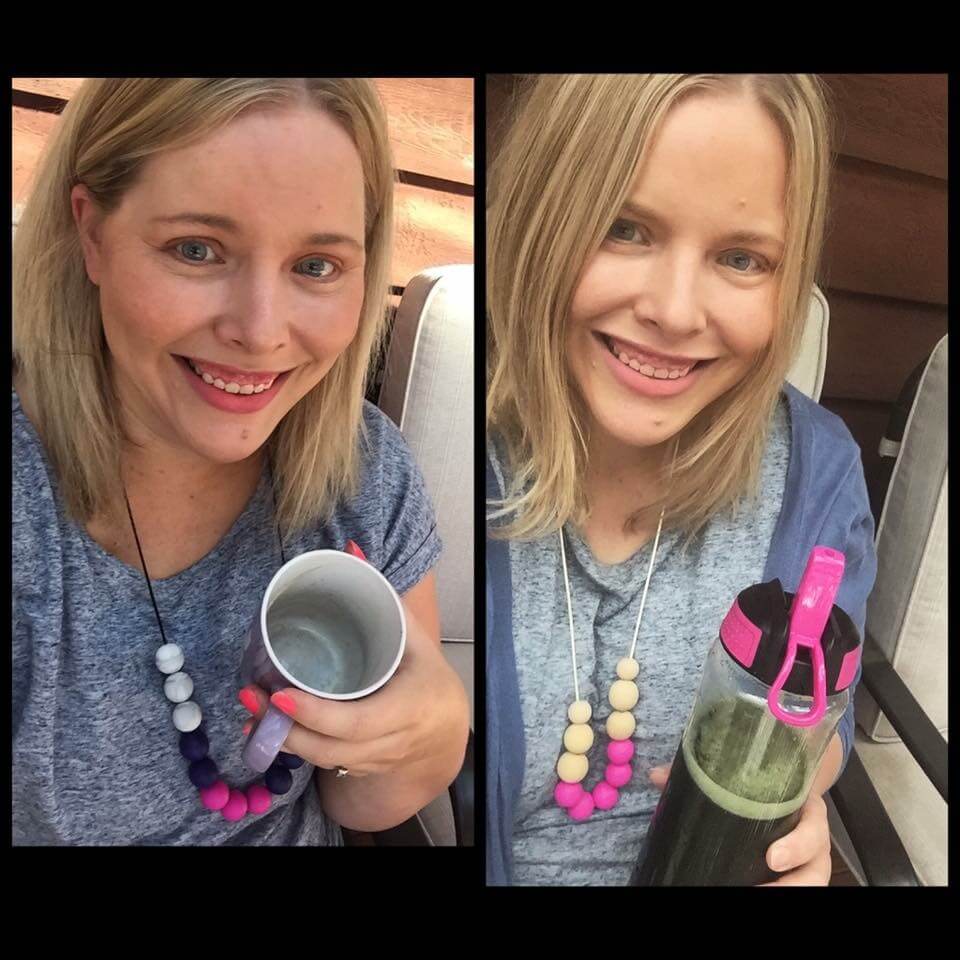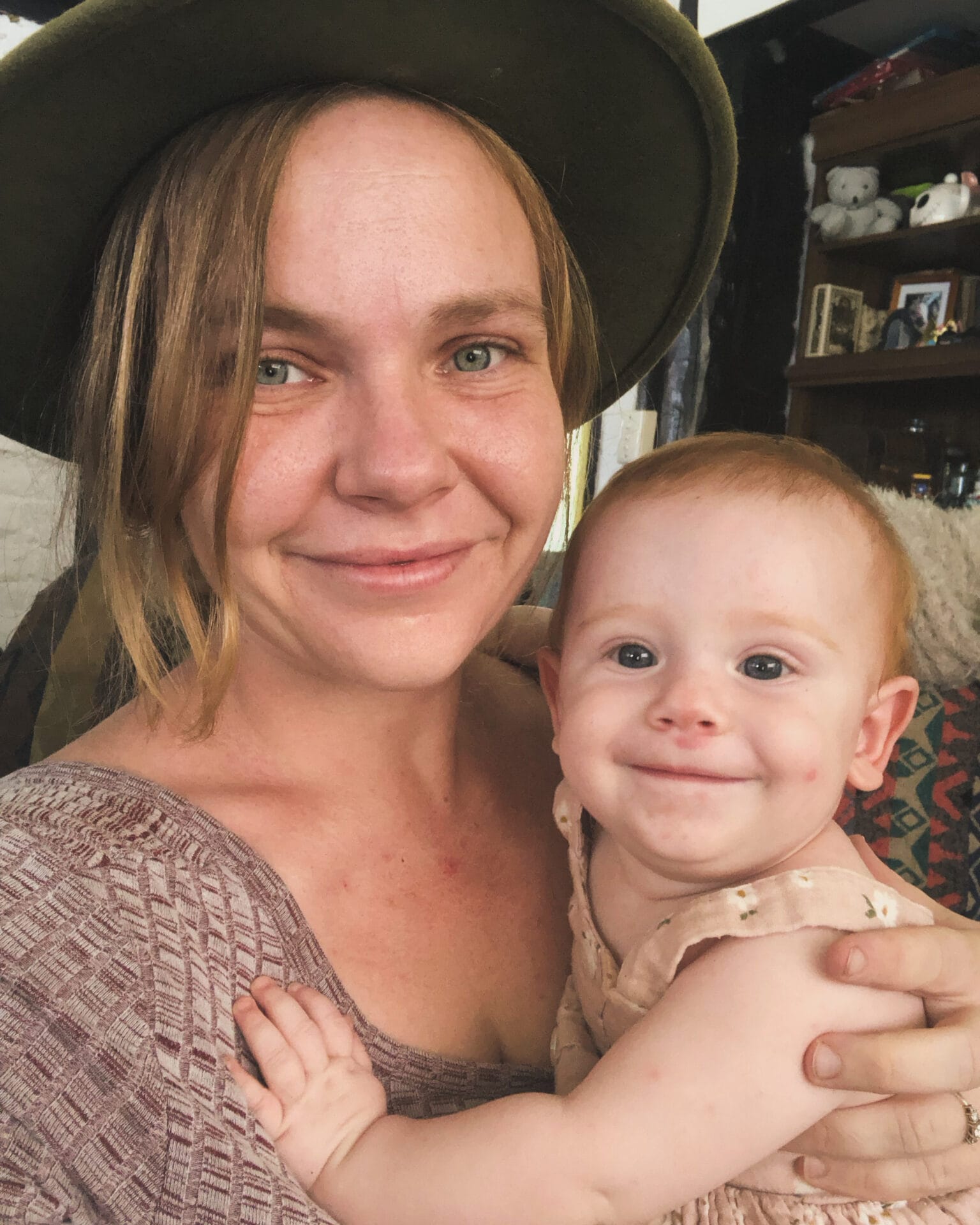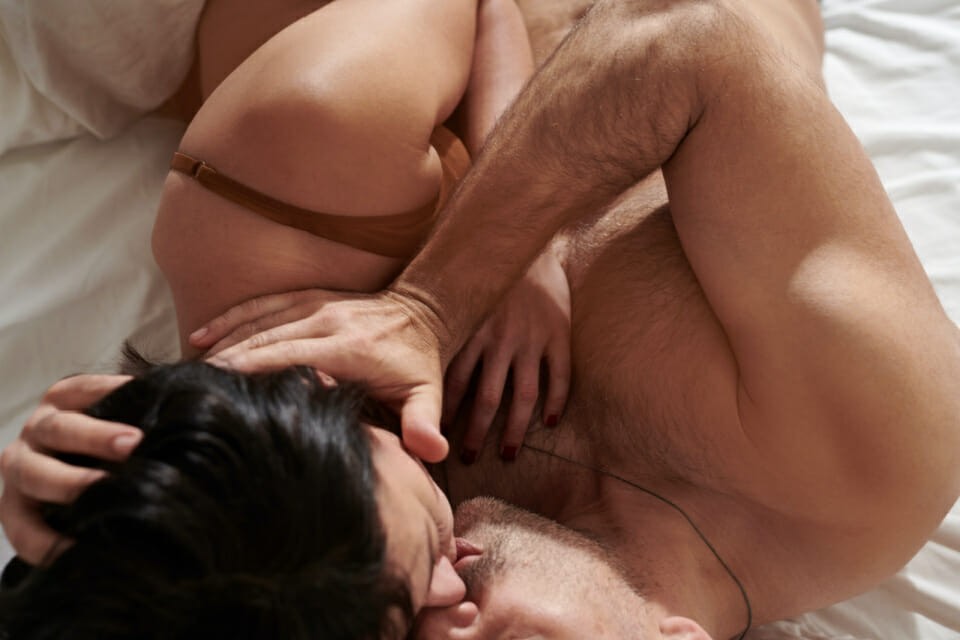30 REMARKABLE things that will happen in your baby’s first year of life
The first 12 months after you give birth, are a crucial development period for your little one. From rolling over, to crawling, to standing on their own two feet.
While our babies don’t come into the world with an instruction manual, they certainly are full of surprises.
Here are 30 interesting facts (and rather remarkable things) that will occur during your baby’s first year of life.
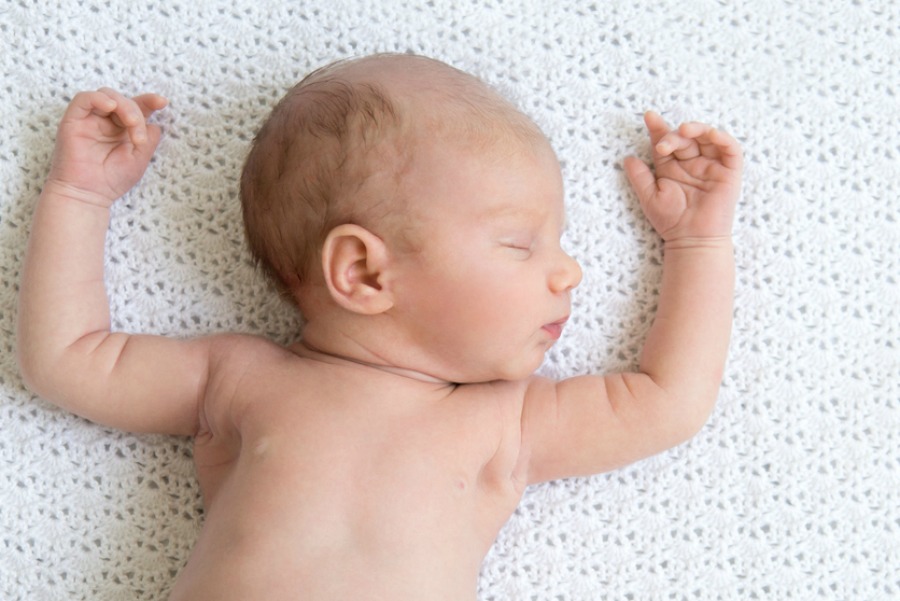
30 AMAZING thats that will happen to your baby in the first year
1. Double in weight
By the time they reach 5 months, these little milk monsters will have doubled in weight.
2. No knee caps
Babies are born without the bony knee cap (patella) adults have. They have a soft piece of cartilage which fully develops by age 12.
3. Made up of cartilage
Speaking of bones and cartilage, the skeleton of a newborn is actually made up of 300+ parts, most of which is cartilage. Over time, most of this cartilage turns into bone – eventually forming the 206 bones that adults have.
4. Don’t cry tears
Up until 3 weeks of age babies cry is just a sound, as their tear ducts are still forming.
5. Multitasking
Babies have the amazing ability to swallow and breathe at the same time! However, at around 7 months old they outgrow this.
6. Big eyes
Ever noticed the size of a babies eyes in comparison to their hands or feet? This is because they are already at 75% the size of their adult eyes.

7. May babies are the heaviest
Like some magical phenomenon, May babies on average are born 200 grams heavier than babies born on any other month.
8. Extra taste buds
Newborns are born with taste buds, not only on their tongue, but the sides of their mouth and the roof.
9. Menstruate
Your newborn daughter will most likely have a little mini period on day 2 or 3 of life. This is caused by the withdrawal of hormones that she was exposed in-utero.
It’s totally normal and you can breathe easy knowing they won’t have another period for at least another decade.
10. Erections
Newborn boys will also have erections. Most likely when you are changing their nappies.
This, too, is nothing to worry about, as long as it goes down quickly and doesn’t make him uncomfortable.
11. Lactate
Another strange reaction to the withdrawal of the hormones from being in-utero. It is not uncommon for babies of either gender to lactate.
Milk usually subsides by the second week of life.
12. Addictive Smell
No longer the crazy, clucky aunt or friend… it has been scientifically proven that a newborn’s smell is addictive!
It triggers the same reward circuits in the brain that comes from say, satisfying a food craving.
13. Eye colour
At six months your baby’s eye colour may change and become more a permanent colour. Sometimes going from blue to brown.
14. Can’t taste salt
Despite the fact babies are born with around 10,000 taste buds (half of which will disappear eventually), your baby cannot taste salt until they are four months old.
15. Brain size
Your little one’s brain will reach 60 percent of its adult size by their first birthday.
16. Head size
A big brain means a baby’s head is proportionally huge, being one-quarter of the total body length, compared to only one-eighth of the total adult’s length. This evens out over the next year.
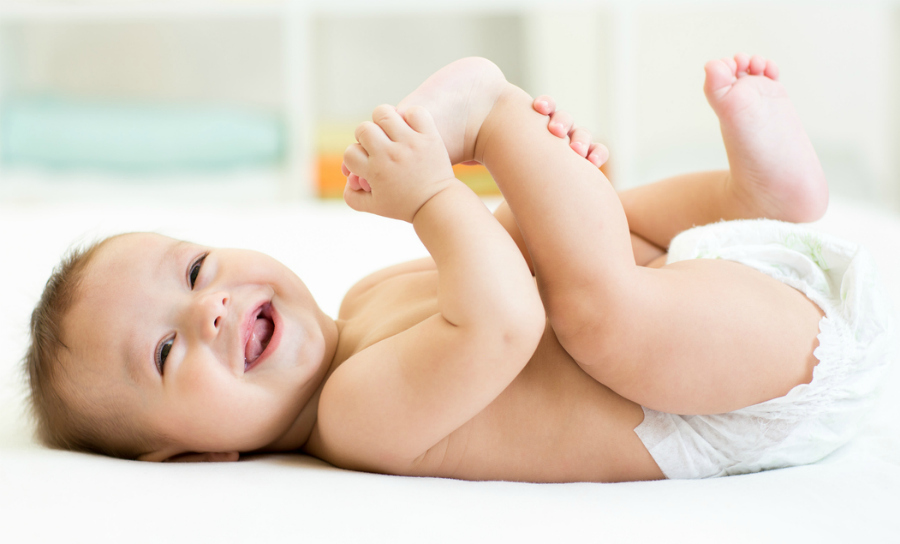
17. Nappy changes
In the first few weeks after birth, a newborn will urinate every 20 minutes, but this slowly decreases until six months.
18. Growing baby
A baby grows between one to one and a half inches on average every month. Thankfully, babies stop growing as quickly after the first year. If they kept growing at the same rate, they’d be 52m by the time they reached adulthood!
19. Real smiles
They say a baby smiling in the first few weeks after birth is just ‘wind’, but your baby will actually really smile for the first time between four and six weeks.
20. Musical brains
Scientists have found that babies can understand music before they’re able to understand word sounds. By the time they’re one, they will be able to understand 70 words.
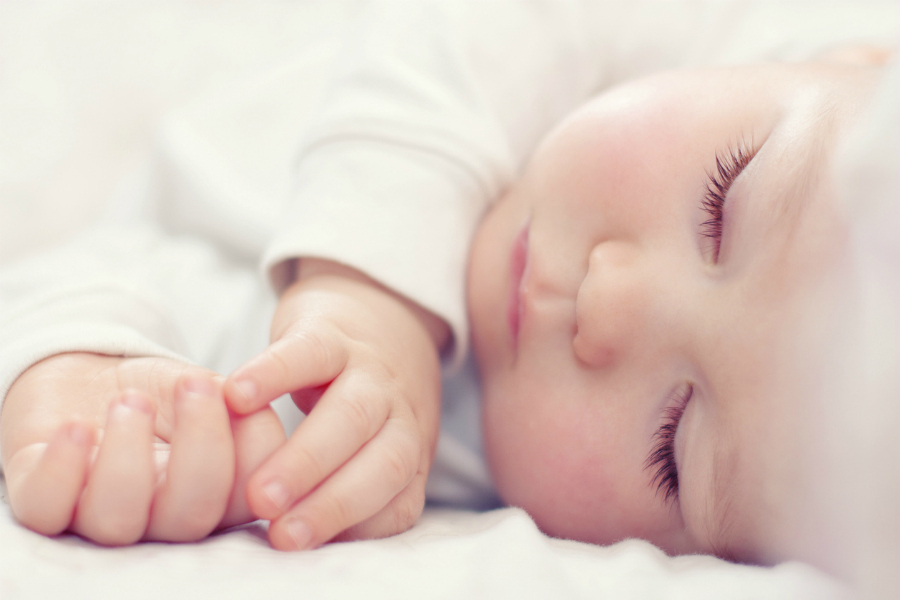
21. Dreamless sleep
According to psychologist David Foulkes, one of the world’s leading experts on paediatric dreaming, children are actually dreamless for the first few years of life.
Considering babies’ limited pool of experiences and their brains’ immaturity, Foulkes and other neuroscientists believe that dreams don’t develop until after the baby stage has passed.
22. Waving
Your baby will be able to wave to you by the age of nine months.
23. Losing hair
Ever wondered what happens to the soft baby hair your baby is born with? Sadly, it all falls out. Babies lose all of the hair they’re born with by their first birthday.
24. Baby teeth
Your baby is not toothless at birth, as babies are born with 20 primary teeth in their jaw. The majority of babies will have their first tooth between the age of four and seven months.
25. Birth marks
Around 80 per cent of infants are born with some form of birthmark.
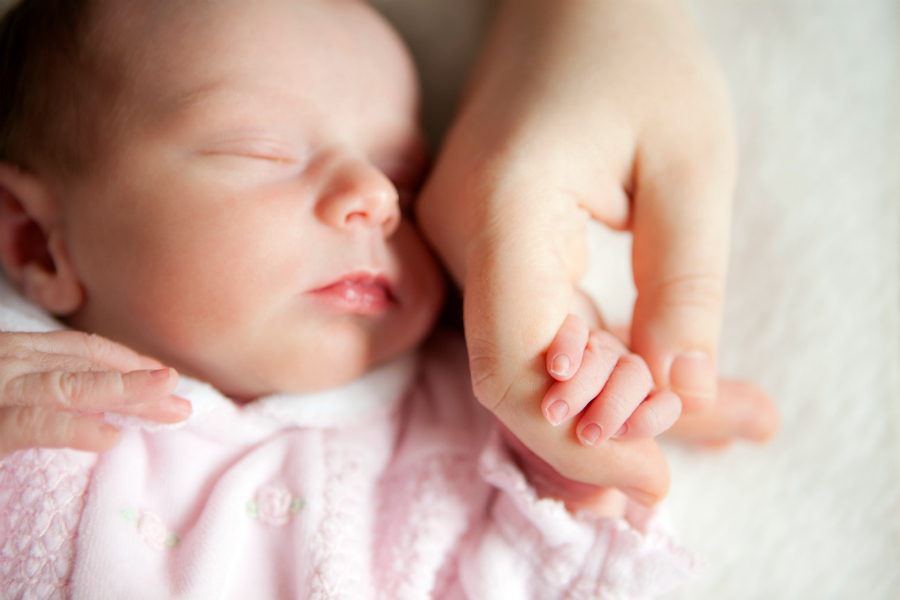
26. Strong grasp
A newborn babies grasp is so strong that it could support its weight and hang mid air if it needed to.
27. Natural born swimmers
Babies are born with natural swimming abilities and can hold their breath under water. However, this ability quickly diminishes.
28. Heartbeat
A baby’s heartbeat is usually at 180 beats per minute, but after a few hours it goes down to 140 pulses per minute. By the time he or she is a year old, the heart rate is around 115 beats per minute.
29. Short sighted
Newborns are nearsighted and can only see objects near them within 8 to 12 inches. By the time your baby is one he or she will have learned to focus and have long sighted vision.
30. Good listeners
Babies are good listeners – even before they’re born. As soon as they are two days old, the recognise his mother’s voice, while not being able to see her properly. It takes a few weeks before a baby can see the difference between its mother and other adults.
Fascinating stuff!
So, while we cannot give you a parenting manual, hopefully we have given you some insight into the life of a newborn.
Did you know The Healthy Mummy Smoothie is breastfeeding friendly?
Have you just given birth? The Healthy Mummy Smoothie range has been formulated by leading nutritionists, dieticians and offers an excellent source of essential vitamins, minerals, nutrients and important antioxidants.

